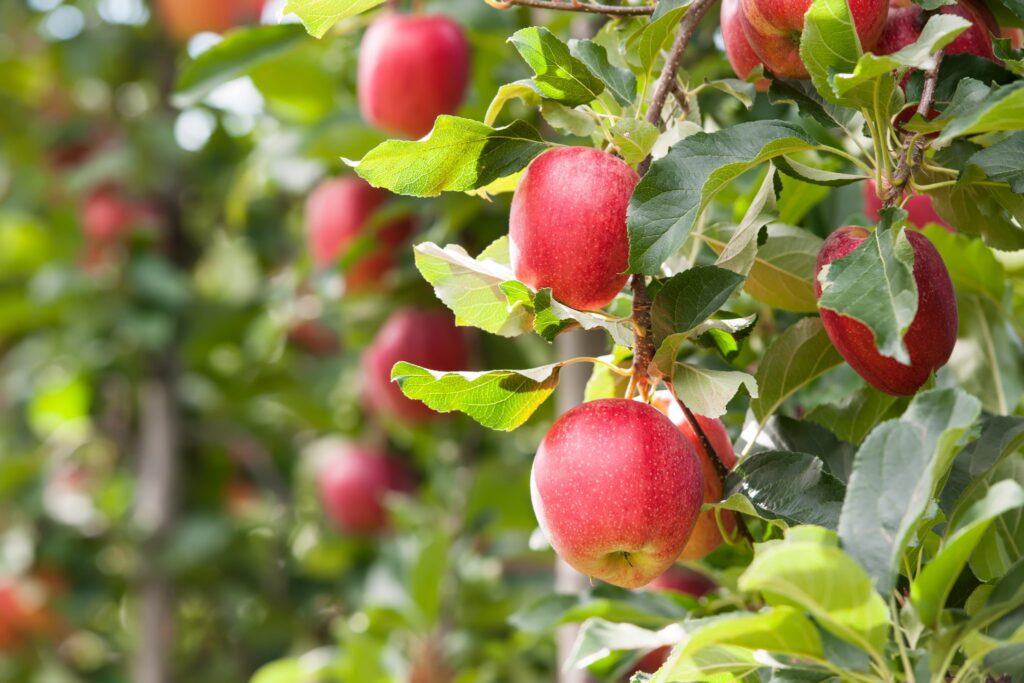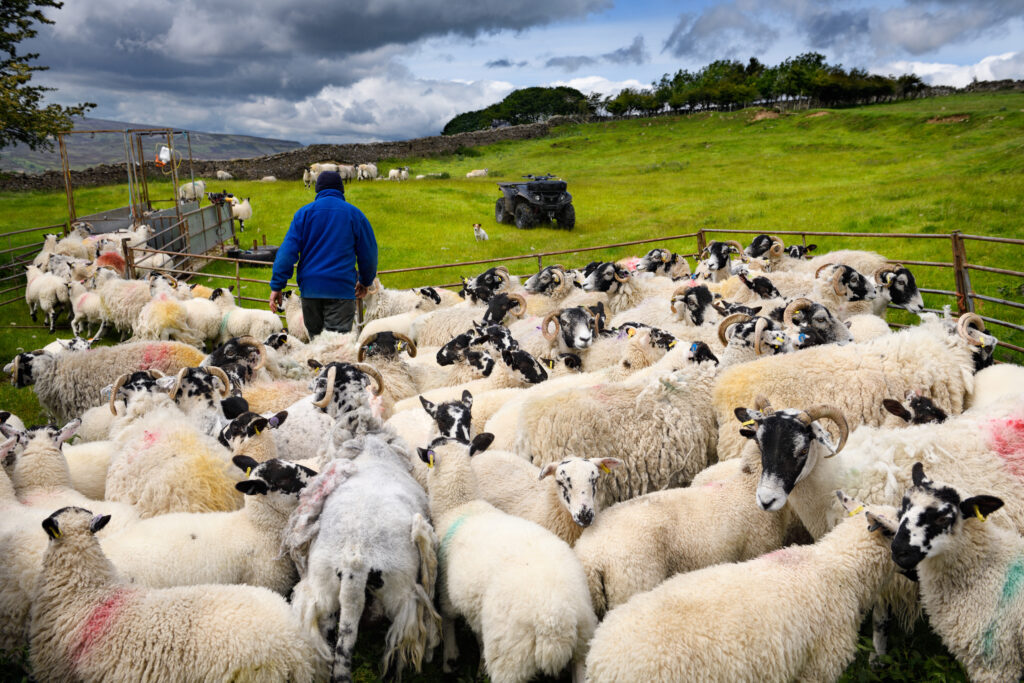Agriculture, whilst not being the largest contributor to emissions, can provide an opportunity for sustainable solutions in climate mitigation and the UK’s goal to have a fully decarbonised system by 2035. Responsible for approximately 11% of the UK’s total emissions, achieving net zero in agriculture will require a multifaceted approach, incorporating agri-tech with innovative practices and collaborative projects.
Agricultural systems play a key role in carbon sequestration through land-use. However, this is countered by a need to reduce greenhouse gas (GHG) emissions whilst increasing nutrient efficiency. In January 2020, the Committee on Climate Change identified the scope for agriculture, land use and peatlands to collectively reduce their carbon emissions by 64% by 2050.
There is a raft of existing and emerging agri-tech solutions that are being designed and developed to drive more sustainable food production, including vertical farming, biotechnologies, zero tillage, robotics and automation, and more efficient waste management solutions to name just a few.
As detailed in the UK Agri-Tech Centre ‘The Future of UK Agri-Tech’ report, one in four agri-industries businesses say it is a priority to become more sustainable in the next five years, and one in four say it’s a priority to implement measures to adapt to climate change. Nearly one in three innovation and technology decision makers in UK agriculture and food businesses say that carbon emissions and greenhouse gases will be a major challenge for their business over the next five years.
This article explores examples of how the UK Agri-Tech Centre with its collaborators is navigating this complex challenge, using cross-cutting technologies and our capabilities to work in a nature-positive way and pave the way for a sustainable agri-food sector.

Grassland Modelling Solution to Revolutionise Grass Growth Forecasting for UK Farmers
- Strategic Theme: Sustainable Production
- Project: Grasslands Modelling for Improved Utilisation
- Funding: 24-Month Innovate UK project
- Consortium: UK Agri-Tech Centre and Agribot
The UK Agri-Tech Centre and Agribot, an artificial intelligence and climate technology firm, are developing and testing a grassland modelling solution to provide grass growth forecasting measurements with accuracy that was unattainable in previous technology—saving money and bringing environmental benefits.
Working with the Cumbria farm network and a dairy farm in Leicestershire, the Grassland Modelling project distinguishes itself from previous grass growth forecasting methods as it combines innovative Synthetic Aperture Radar (SAR), a form of radar that can easily pass-through clouds with a novel two-week probabilistic weather model.
The result is year-round reliable data on the dry matter mass cover in an identified field. Farmers will be able to use the data to make informed decisions about their own fields, enhancing farm productivity and lowering the carbon footprint of dairy herds.

Enhancing Apple Orchard Sustainability
- Strategic Theme: Resilient Food Systems
- Project: Taking Commercial Apple Production to Net Zero
- Funding: 24-Month Innovate UK Farming Innovation Programme: Feasibility Study
- Consortium: UK Agri-Tech Centre, British Apples and Pears, Adrian Scripps Ltd, R E Collins Limited, Stocks Farm, H.L. Hutchinson Ltd, University of Edinburgh, Cranfield University, Carbogenics and Combind Industries.
The UK Agri-Tech Centre, British Apples and Pears Ltd and partners are investigating opportunities when apple orchard reach the end of their life as part of a new research collaboration. This feasibility study will look at the rapid thermal decomposition method, pyrolysis, in dessert fruit orchards at the end of their productive cycles, as a sustainable alternative to the existing ‘grub and burn’ approach.
Pyrolysis converts biomass into biochar- an organically derived form of stabilised carbon. This proceed will reduce associated carbon emissions with existing approaches, and the resulting biochar can be used as a soil improver to potentially increase orchard yields and productivity.
The potential use of carbon credits as a new revenue stream opportunity for growers will be explored, taking advantage of carbon markets and increasing the economic resilience of the apple growing sector. This will support the transition of the commercial apple growing sector towards net zero.

Enhancing Efficiency and Reducing Environmental Impact in Sheep Farming
- Strategic Theme: One health
- Project: Breed for Ch4nge
- Funding: 36-Month Innovate UK Farming Innovation Programme: Small R&D
- Consortium: UK Agri-Tech Centre, Innovis, AHDB, Harper Adams University, National Sheep Association, Performance Recorded Lleyn Breeders (PRLB), Sheep Improving Group (SIG), Scotland’s Rural College (SRUC), Pilgrim’s Pride and Waitrose & Partners.
The UK Agri-Tech Centre, Innovis, a leading supplier of performance-recorded rams, and partners are working on Breed for CH4nge. This is an industry-wide project developing genetic improvement tools centred on sustainability through a combined focus on profitability, productive efficiency and environmental impact. Further gains are possible through breeding sheep that produce less enteric methane per unit of feed consumed.
The three-year initiative will measure methane emissions from 45 flocks, collect data and build and develop the tools required to genetically reduce methane emissions and improve the efficiency of the national flock. The project will eventually demonstrate the impact of low-carbon sheep on whole farm carbon footprint.
Genomic breeding values (gBVs) can be disseminated rapidly and widely across sheep flocks, and provide an opportunity for sustained genetic improvement. The collaboration of breeders, academics and industry bodies overcomes the challenges for individual breeders in isolation and creates a route towards net zero carbon for the English sheep sector.

Innovative Forestry Management with Mapping Technologies
- Strategic Theme: Intelligent Agriculture
- Project: The Development of an Accessible UAV-based Tree Health Management Platform
- Funding: 24-Month Innovate UK Farming Innovation Programme: Feasibility Study
- Consortium: UK Agri-Tech Centre, Vertinetik and The Open University.
The UK Agri-Tech Centre and Vertinetik are tackling ADD (Ash Dieback Disease) and other tree diseases that threaten productivity in forestry and biodiversity. Ash trees are a versatile, native tree species with commercial applications in the timber industry, with ADD forecasted to eventually kill 80% of ash trees.
Emerging technologies are being implemented to develop predictive models to facilitate the mapping and monitoring of ash trees through data capture from drone-mounted sensors. This system will help farmers and woodland owners manage ADD through incidence maps, and plan routes to recovery and restoration of trees.
The project aims to provide an affordable solution to benefit smaller woodland owners in identifying disease infestations and taking proactive intervention measures to protect the economic and ecological value of Ash Trees.
Partnering with Impact
Achieving net zero in agriculture requires collaboration across the entire agri-food supply chain. Partnerships between farmers, researchers, technology providers, and policymakers are crucial for developing and scaling up sustainable practices.
The UK Agri-Tech Centre continues to drive innovation by bringing together diverse stakeholders to share knowledge, push boundaries and bridge gaps between research, industry, and policymakers.
We provide a range of services to help you deliver impactful and rapid change:
Strategic Partnership and Consortium Building: Leverage our established relationships with over 600 diverse organisations, including start-ups, SMEs, and established companies, farmers from the agri-industries.
Expert Bid Writing and Project Management: With a portfolio of 440 successful projects, our expertise in bid writing and project management ensures your projects are not only visionary but also viable, with a clear path to commercial success.
Access to Our Farm Network and Technical Capabilities: Utilise our farm network for real-world testing and validation of your technologies. Our technical capabilities span from early-stage R&D to advanced technological applications.
